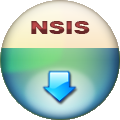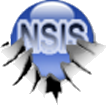Top Debian Package Maker Alternatives for Seamless Linux Deployment
DebianPackageMaker has served as a straightforward tool for creating Debian packages, simplifying the deployment of Linux applications on Debian-based distributions. Its user-friendly interface made the often complex process more accessible for many developers. However, as development needs evolve and specific functionalities become crucial, exploring a robust Debian Package Maker alternative can significantly enhance your workflow. Whether you're looking for broader platform support, advanced scripting capabilities, or open-source solutions, a variety of excellent tools exist to meet diverse package creation demands.
Discovering the Best Debian Package Maker Alternatives
When seeking a replacement for Debian Package Maker, it's essential to consider factors such as supported platforms, open-source availability, and specific features like installer customization or scriptability. The following alternatives offer compelling reasons to switch, providing enhanced functionality and flexibility for your application packaging needs.

Inno Setup
Inno Setup is a powerful, free, and open-source installer for Windows programs, making it an excellent Debian Package Maker alternative for those targeting Windows deployments. First introduced in 1997, it offers a rich feature set that rivals many commercial installers, including cross-platform compatibility (for its output) and highly customizable installation processes. While primarily Windows-focused, its comprehensive software installer features make it a versatile choice for many development environments.

NSIS
NSIS (Nullsoft Scriptable Install System) is a professional, open-source system for creating Windows installers. As a strong Debian Package Maker alternative, NSIS is designed to be as small and flexible as possible, offering powerful scripting capabilities for highly customized installation routines. It supports Windows and PortableApps.com, providing portable software installer solutions that are ideal for complex deployment scenarios.

Makeself
Makeself.sh is a small shell script that generates self-extractable tar.gz archives from a directory, serving as a fundamental Debian Package Maker alternative for Unix-like systems. It's free and open-source, supporting Mac, Linux, and BSD. While not a dedicated Debian package builder, its file compression and self-extraction capabilities can be foundational for creating simpler deployment packages, especially for script-based applications.

Debreate
Debreate is a direct and excellent Debian Package Maker alternative, specifically designed to aid in building Debian packages (.deb). It's a free and open-source utility available for Linux, with the goal of making development for Debian-based Linux distributions more accessible and appealing. If your primary need is robust Debian package creation, Debreate offers a dedicated and streamlined experience.

CreateInstall
CreateInstall is professional installer software available for Windows, offered on a freemium model. It serves as a strong Debian Package Maker alternative for developers focused on creating sophisticated Windows installers. Its ideology centers on providing an essential, robust component for software deployment, ensuring a reliable software installer experience.

InstallShield
InstallShield is a commercial software for Windows, designed to empower development teams with agile, collaborative, and flexible tools for building reliable InstallScript and Windows Installer (MSI) packages. While a commercial option, it stands as a premium Debian Package Maker alternative for those prioritizing enterprise-grade Windows installation solutions and robust deployment workflows.

ClickTeam Install Creator
ClickTeam Install Creator is a freemium tool for Windows that focuses on simplifying the installer creation process, allowing developers to concentrate on their applications rather than the installer itself. It provides a fully functional freeware version, making it an accessible Debian Package Maker alternative for creating straightforward Windows installers with minimal fuss.

InstallBuilder
InstallBuilder is a modern, easy-to-use cross-platform installation tool, similar to InstallShield multiplatform and InstallAnywhere, making it a highly versatile Debian Package Maker alternative. Available commercially for Mac, Windows, and Linux, it offers customizable software installer features and supports various deployment scenarios, including Java applications. It's an excellent choice for developers needing a single solution across multiple operating systems.

HM NIS EDIT
HM NIS Edit is an excellent Editor/IDE for NSIS, making it an indirect but valuable Debian Package Maker alternative by enhancing the NSIS experience. It's free and open-source, supporting Windows and PortableApps.com. Useful for both experts and beginners, it simplifies the creation of setup programs with NSIS, providing an integrated development environment for robust software installers.

Deb-o-Matic
Deb-o-Matic is an easy-to-use utility specifically designed to build Debian source packages, making it a direct and highly relevant Debian Package Maker alternative. It's free and open-source, available for Linux, and aims to help developers automate the building of their packages with a tool that requires minimal setup. For those deeply entrenched in Debian development, Deb-o-Matic offers a focused and efficient solution.
The landscape of software packaging tools is rich and diverse. While Debian Package Maker provided a simple entry point, exploring these alternatives can unlock greater flexibility, advanced features, and broader platform support tailored to your specific project requirements. We encourage you to explore the options presented and choose the Debian Package Maker alternative that best aligns with your development workflow and deployment goals.